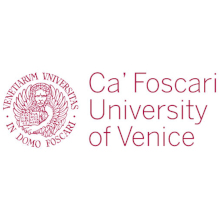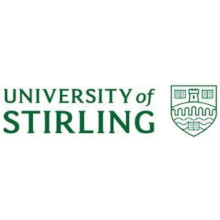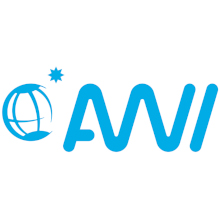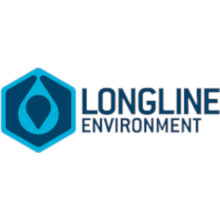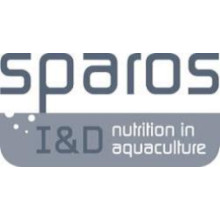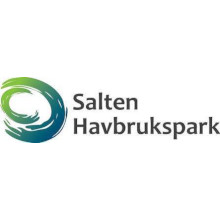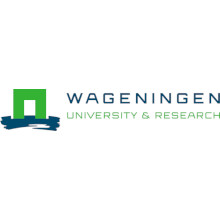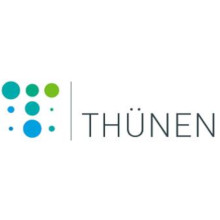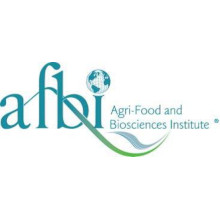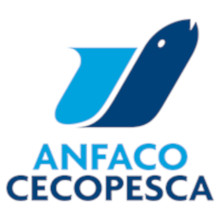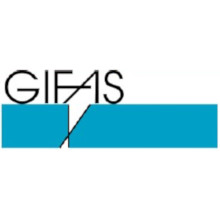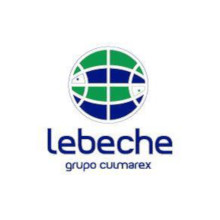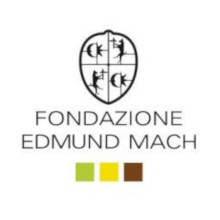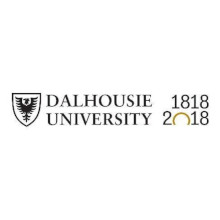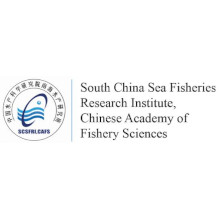Partners
Ca’ Foscari University is a public university organized in eight departments with an internationally outstanding reputation of academic excellence in both teaching and research in four main areas: Economics, Environmental Sciences, Foreign Languages and Humanities. The “Department of Environmental Sciences, Informatics and Statistics (DAIS)", established in January 2011, merges expertise from Environmental Sciences, Computer Science, Statistics and Economics. Interactions among DAIS scientists ensure that research activities are carried out based on a multidisciplinary approach and enable the Department to investigate cross-cutting research themes, such as: climate change, environmental monitoring, risk analysis, security and sustainability. DAIS research activities are carried out jointly with a wide network of internationally renowned research institutions and industrial partnerships and are funded broadly by the major national and European research agencies and funding bodies. DAIS will contribute to GAIN modelling activities and development of taylor made sustainability assessment indicators for the acquaculture industry. Furthermore, the National Oceanic and Atmospheric Administration (NOAA) will collaborate to GAIN as international partner of Unive.
The Institute of Aquaculture (IoA) is part of the University of Stirling in central Scotland, now celebrating its 50th year. IoA have been at the forefront of cutting edge aquaculture research since the 1970s, including health management, nutrition, genetics, international development, systems and environmental impact. The Aquaculture Systems research group have been a key player in large and smaller research and development projects from a range of major donors e.g. EU, DFID, BBSRC, British Council, Scottish government which have proven impact in local and international aquaculture development.
Examples of recent larger funded projects include coordination of the EC5FP7 funded Sustaining Ethical Aquaculture Trade (SEAT) project working across four Asian countries, China, Thailand, Vietnam and Bangladesh, which sought to improve the sustainability of value chains into European seafood markets. Direct collaborations with the private sector are important and exemplified by work with Marine Harvest Scotland, Scottish Sea Farms, Scottish Salmon Company, Cooke Scotland, Biomar and the Marine Ingredients Organisation (IFFO) which seek to bridge the gap between research and commercialisation into viable industry innovations.
IoA has also been key partners in AqASEM09 (FP7 EU Asia Cooperation), AQUAEXCEL (FP7 and H2020 Research Infrastructures), PrimeFish (H2020 Seafood competitiveness). Additional networking expertise was demonstrated through coordination of the ECFP7 SARNISSA African Aquaculture Research networks project which 3 years after completion of EC funding is self-sustaining and benefitting thousands of individuals working in African aquaculture. UoS - IoA also coordinated the last phase of the EU Erasmus Thematic Network in Aquaculture, Fisheries and Aquatic Resources Management (AQUA-TNET).
The Alfred Wegener Institute Helmholtz-Centre for Polar and Marine Research (AWI) is a foundation under public law and member of the Helmholtz Association - the largest scientific organization in Germany. It coordinates German polar research efforts, while also conducting research in the North Sea and adjacent coastal regions in Germany. Combining innovative approaches, outstanding research infrastructure and years of expertise, the Alfred Wegener Institute explores nearly all aspects of the Earth system – from the atmosphere to the ocean floor. In marine applied sciences AWI is world leading in e.g. multi-use scenarios at sea since 2000 conducting more than 15 projects on the multi-use of wind farming and aquaculture/passive fisheries nationally and internationally, which was in many cases based on IMTA, eco-system friendly aquaculture and the use of marine resources and residual materials/waste products for aquaculture feed and niche products. In addition, AWI is running various land-based aquaculture test devices on RAS basis as well as with flow through systems. In these test facilities numerous projects with relevance to GAIN topics were conducted.
For more than seven decades, IBM Research has defined the future of information technology with more than 3,000 researchers in 12 labs located across six continents. Scientists from IBM Research have produced six Nobel Laureates, 10 U.S. National Medals of Technology, five U.S. National Medals of Science, six Turing Awards, 19 inductees in the National Academy of Sciences and 20 inductees into the U.S. National Inventors Hall of Fame. At IBM Research – Ireland, our scientists and engineers are helping clients and partners make better decisions using an array of Internet of Things (IoT) and Artificial Intelligence (AI) technologies and expertise. Together we are testing new technologies on real business problems and discovering new growth opportunities. We are focused on AI, IoT, cognitive integrated healthcare, interactive reasoning, data centric computing, cloud and privacy. We have expertise in optimisation and control, decision science, statistics, machine learning, deep learning, large-scale modeling, data mining and assimilation, deep semantic reasoning, natural language processing, cloud and edge computing.
For more information:
www.research.ibm.com/labs/ireland/
CSIC is the largest public research institution in Spain and the third largest in Europe. CSIC has 10.940 employees and 123 Institutes. Its main objective is to develop and promote research covering all fields of knowledge, from basic to applied research. CSIC produces 20% of the national scientific output and is the leading patent filer in Spain. Within H2020, CSIC has obtained 203 projects totaling 88.5 million € in EU contribution, being the 1st organisation in Spain and the 10th in Europe in H2020 funding. CSIC participates in GAIN through the Instituto de Investigaciones Marinas (IIM) and the Instituto de Acuicultura Torre de la Sal (IATS). IIM research is focused on fisheries, oceanography, marine biology, aquaculture and food technology. IATS deals with all the fields of marine aquaculture, from basic to applied aspects, with permanent contact with the aquaculture industry. In GAIN IIM will lead and have a key role in WP2, covering tasks related to the valorization of aquaculture by-products and production of FPHs from fishing discards for feed aquaculture formulations. IATS will participate in WP1 helping to strain diet formulation by the use of a wide-range of biomarkers of diagnostic and prognostic value.
LLE is an SME that provides modelling, data, and insurance solutions for the aquaculture, fisheries and water quality industries. Its key mission is to challenge the status quo in the aquaculture and fisheries sectors. Its data and modelling expertise – acquired via an extensive combined experience in research, oriented to applications for estuarine and coastal issues – addresses key production, environmental, economic, and social issues faced by stakeholders, regulators and water managers. With extensive experience in a wide range of species and culture systems, its track record spans Europe, the Americas, Middle East, Southern Africa, Southeast Asia and China.
SPAROS (www.sparos.pt) is a technology-driven SME dedicated to the development of new products and tailored nutritional solutions for the aquaculture market. It offers the alliance of a strong scientific background in the areas of fish nutrition and aquaculture, with a flexible pilot scale feed mill. SPAROS has commercial products for the aquaculture (HATCHERY FEEDS), and biomedical (ZEBRAFEED) markets. It has also a web tool for fish farmers and fish nutritionists to evaluate effects of feeds and feeding on fish growth and waste production (FEEDNETICS). Currently SPAROS comprises 17 full time collaborators that master the key concepts, techniques and methodologies in the areas of aquafeed technology, fish nutrition, fish husbandry, and nutritional modulation of digestion, metabolism and health.
Salten Havbrukspark (SHP) is a private limited company founded in 2012, aiming for innovation driven synergistic processes and businesses within the marine sector, through exclusive insight and foresight. Qualifying core values are blue, circular and sustainable endeavours befitting developmental societal, legislation and policy trends. Main areas of industrial and scientific expertise are finfish aquaculture, seaweed aquaculture and microalgae production, including utilisation and valorisation of their side streams.
WU has a strong track record in management of multipartner projects with industries at the EU and national level. The WU- Bioprocess Engineering Group (WU-BPE) performs research on development of novel biotechnological processes for production of pharmaceuticals, healthy food ingredients, bulk chemicals and biofuels. BPE’s mission is to produce high quality biobased products in a sustainable and economical way. BPE has over 15 years’ experience with the cultivation and processing of algae and has a solid scientific basis and expertise of bioreactor design, medium optimization, metabolic flux modeling, strain improvement, scale-up, biorefinery as well as system design and evaluation. The total number of PhD students in this area is now 25 and 1 professor, 1 associate professor and 2 assistant professors and 4 PostDocs from our staff are working in this field. We collaborate with many (international) companies and are involved in multiple large research programs on the national and the EU level. Since 2012 WU operates AlgaePARC (www.AlgaePARC.com), a pilot scale test facility outdoors for algae cultivation and processing to bridge the gap between R&D and commercial application in collaboration with several international industries. The AlgaePARC facility will be available for GAIN activities.
The Thünen-Institute of Sea Fisheries undertakes ecological and economic research to guide the sustainable use of living marine resources. TI-SF supports the German Federal Ministry of Nutrition and Agriculture with respect to the implementation of the EU Common Fisheries Policy and the development of aquaculture production systems in Germany. Through its research activities and scientific monitoring programs, the institute contributes to increase knowledge about ecology and economy of marine systems, including aquaculture activities. The institute provides research-based advice to the European Commission (STECF and other EU advisory boards) to the International Council for the Exploration of the Sea (ICES). TI-SF takes part in international research projects funded by EU and other agencies in order to resolve specific questions regarding the management of marine living resources, aquaculture production systems and to further improve the scientific basis of its advice. TI-SF coordinated the EU-funded FP 7 project “SOCIOEC” as well as a number of WPs and case studies in the EU-Projects MYFISH, SUCCESS, AquaSpace, and CERES.
The Agri-Food and Biosciences Institute (AFBI) is a Non-Departmental Public Body (NDPB) that was established under the Agriculture (Northern Ireland) Order, 2004, which empowers it to undertake assigned work programmes on behalf of the Department of Agriculture, Environment and Rural Affairs (DAERA). AFBI’s core functions are to deliver a programme of statutory testing, surveillance, emergency response, research and development and scientific advice in relation to animal and plant disease, the environment, food safety, freshwater and marine fisheries and rural and agri-food and rural economics. Fisheries and Aquatic Ecosystems Branch (FAEB) conducts research and development, monitoring and technology transfer in support of sustainable management of fisheries and aquatic resources, focusing particularly on the needs of Northern Ireland. Currently, approximately 47 AFBI staff, together with contract staff and postgraduate students are based at FAEB. FAEB conducts science programmes across several core areas: marine fisheries stock assessment and sustainable management, marine resource assessment and modelling of carrying capacity of Northern Ireland’s sea loughs, physical and biological oceanography, marine environmental monitoring, freshwater fisheries stock assessment and development of systems for resource.
ZUT is one of the most important academic institutions for higher education and innovation in Poland. It has an internationally recognized expertise in fundamental and applied freshwater and food research. Moreover, it develops partnerships with industry and assignments accomplished by ZUT‘s public sector consultancy. The Faculty of Food Sciences and Fisheries (WNoŻiR) has 66 years of experience in education and research, which has a high impact rating on a Central European scale. WNoŻiR conducts innovation and research within aquaculture on technological and biological aspects of fish farming, used by the authority, the aquaculture industry and by a large number of secondary industries. International and national innovation activities of the ZUT relevant to the aquaculture and fisheries include the participation to the European Fisheries Fund projects Jurassic Salmon and Celfish. Currently, ZUT (WNoŻiR) is partner of the H2020 projects CERES, ceresproject.eu), and SEAFOODTOMMORROW. ZUT team has strong expertise in carp and salmonid farming (Central Europe), deep knowledge in fish processing, large experience in designing and testing eco-innovative solutions for sustainable seafood production (e.g. geothermal salmon farm) and long-standing experience in training and education.
ANFACO-CECOPESCA is a private national technological centre integrated in the National Association of Manufacturers of Canned Fish and Seafood (ANFACO). Its main mission is the promotion of the quality, research, technological development and innovation in the field of conservation of fisheries and aquaculture products, as well as the transfer of research results to the industry. The centre is established as a reference at national and international level in the marine and food processing sector, becoming the main R+D business booster agent and a key contributor of public administrations in the design and development of public R+D policies. R&D department is composed by six divisions: Food and health, Processing Engineering – Industry 4.0, Processing technologies, food safety, Valorisation of By-products and Circular Economy and Living resources and aquaculture. All divisions are working together to promote the development of R&D&I projects providing companies with the necessary tools to face the execution of R&D&I projects. The Aquaculture and Valorisation divisions will contribute to GAIN by improving the use of by-products and residue in aquaculture sector, in order to enhance the circular economy and the eco-intensification of aquaculture industry.
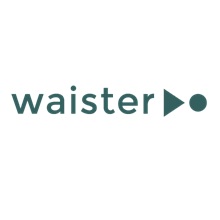
Waister AS (WAS) is a SME company facilitating the transformation of organic by-products into valuable new raw materials. Added value is gained by a patented drying method and standardized dryers in three main segments – aquaculture, breweries, and hotels, restaurants and catering.
Waister AS is mother company to Waister s.r.l., Italy (production of standardized dryers).
Obtained patents include technology for mixing and drying in European Patent Area, USA, Canada, China, Japan and India.
The company’s main focus in the aquaculture segment is on the organic waste streams of fish sludge and mortalities. Waister AS strives towards finding circular economy solutions to current waste problems.
Gildeskål Forskningsstasjon as (GIFAS) is a privately owned independent research institution established in 1989 providing experimental facilities for the aquaculture industry. Our international client base ranges from industry to educational institutes, through which we undertake both collaborative and commissioned research. We also undertake internally derived research projects encompassing both technical and biological aspects of the aquaculture industry. Through our small-scale facilities we offer controlled research under realistic environmental conditions whereas, our large-scale facilities provide an opportunity to evaluate and implement scientific understanding to commercial production strategies. Over the past decade, GIFAS has undertaken numerous trials focusing on replacing marine with novel feed components. Such projects have been financed by The Norwegian Research Council (NRC), EU (FP5, FP7) and the US Department of Energy.
LEBECHE has 4 offshore sea farming areas in Murcia Coast (Mediterranean Sea). They are strategically located less than 100 km from CULMAREX GROUP processing centre. Production capacity: 6.000 tons/year of seabass/bream. LEBECHE SPAIN SLU is the biggest company of the CULMAREX GROUP, which became part of Cooke Aquaculture in 2011. At present, Cooke Aquaculture produces sablefish, pacific cod, halibut, hake and Pollock, scallops, shrimps, oysters, crabs, fish roe and derivatives canned products. As regards the species investigated in GAIN, Cooke Aquaculture processes and sells about 115,000 metric tons of Atlantic salmon and 20,000 metric tons of sea bass and sea bream each year, in volume, for a value of nearly 2 billion US $.
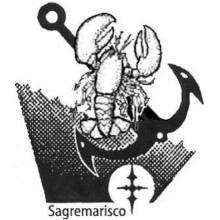
Sagremarisco-Viveiros de Marisco Lda was founded in 1995 and is located at Sagres on the extreme SW of the Iberian Peninsula, within the Parque Natural do Sudoeste Alentejano e Costa Vicentina. SGM operates at the interface between industry, education and scientific research: industry maintenance support for the local aquaculture industry and fishing fleet; as well as running trials in marine conditions for materials that are under development for maritime use; education support with equipment and human resources for coastal field studies by both local and foreign universities, and other educational institutions; research-active participation in scientific research projects with an emphasis on the sustainable management of the coastal zone. SGM and or John Icely has been involved with several EU projects both as a subcontractor (+2) and as a partner (+6). SGM also has a contract with the European Space Agency (ESA) for the validation of the MERIS (Medium Resolution Imaging Spectrometer) sensor that was operational on the ENVISAT satellite between 2002 and 2012 and is on the validation team for the current OLCI (Ocean Land Colour Instrument) sensor on the Sentinel 3 satellite.
FEM is a leading Italian institution in education, research, technology, and technology transfer related to the agro-food sector. FEM is a public agency under private law jurisdiction. FEM comprises a Research and Innovation Center (CRI), a Training and Education Center(CIF), and a Technology Transfer Center (CTT), all carrying out activities in the fields of agrifood and sustainable development. FEM promotes and enhances the Trentino-land based economy in Italy, aiming at the improvement of agricultural and forestry productions and the improvement of the quality and nutritional value of food products. CTT provides services and advisory system for the agricultural, aquaculture, forestry and environmental sectors. FEM expresses research capacities at the highest international and national levels, as witnessed by a third-party official evaluation in 2017 (ANVUR): FEM ranked 3rd (out of 63) in chemistry, 4th in agricultural and veterinary sciences (out of 44), and 16th (out of 75) in biology, at the national level, when compared with homologous institutions. From 2010 to 2016, more than 100 research projects were granted (or are being evaluated:) to FEM researchers, both as partners or coordinators. FEM currently (2016) manages/has managed 40 FP5, 6, 7/H2020 projects and 15 national projects.
Dalhousie University is one of the major research institutions in Canada, and as ‘Canada’s ocean university’ has the leading marine sciences programs in the country. Expertise in ocean studies is spread throughout the university in diverse programs including the Faculties of Agriculture, Planning, Management, Engineering, and the Law School. The Departments of Oceanography and Marine Affairs programs are known internationally as global leaders in research and training. The newly awarded federal Ocean Frontier Institute (OFI) is the largest marine science initiative in Canadian history and is based at Dalhousie. The university has a long tradition of European collaboration, and OFI continues this tradition via formal partnerships with Alfred Wegner Institute and other EU institutions, as well as commitments to the Galway initiative. Due to Jon Grant’s leadership, aquaculture has emerged as a central theme in ocean studies at Dalhousie, including OFI, and additional faculty positions dedicated to aquaculture-environment interactions.
South China Sea Fisheries Research Institute, Chinese Academy of Fishery Sciences (SCSFRI) was founded in 1953, is a non-profit national scientific research agency focused on tropical & subtropical fisheries and aquaculture technology, located in Guangzhou, China. The institute consists of six divisions, eleven key & open laboratories/centres and three field bases along the coast of South China Sea. With more than 300 employees and 200 postgraduate students, SCSFRI has played an active role in providing public scientific and technological support at South China region. The major research divisions of SCSFRI includes Marine Fishery Resources, Aquaculture, Food Engineering and Safety, Marine Fishery Environment and Fishery Organism Diseases Control. SCSFRI has a long track record on regional and systematic scale of marine aquaculture ecology research and has fulfilled over 800 scientific research projects during the latest 20 years.

